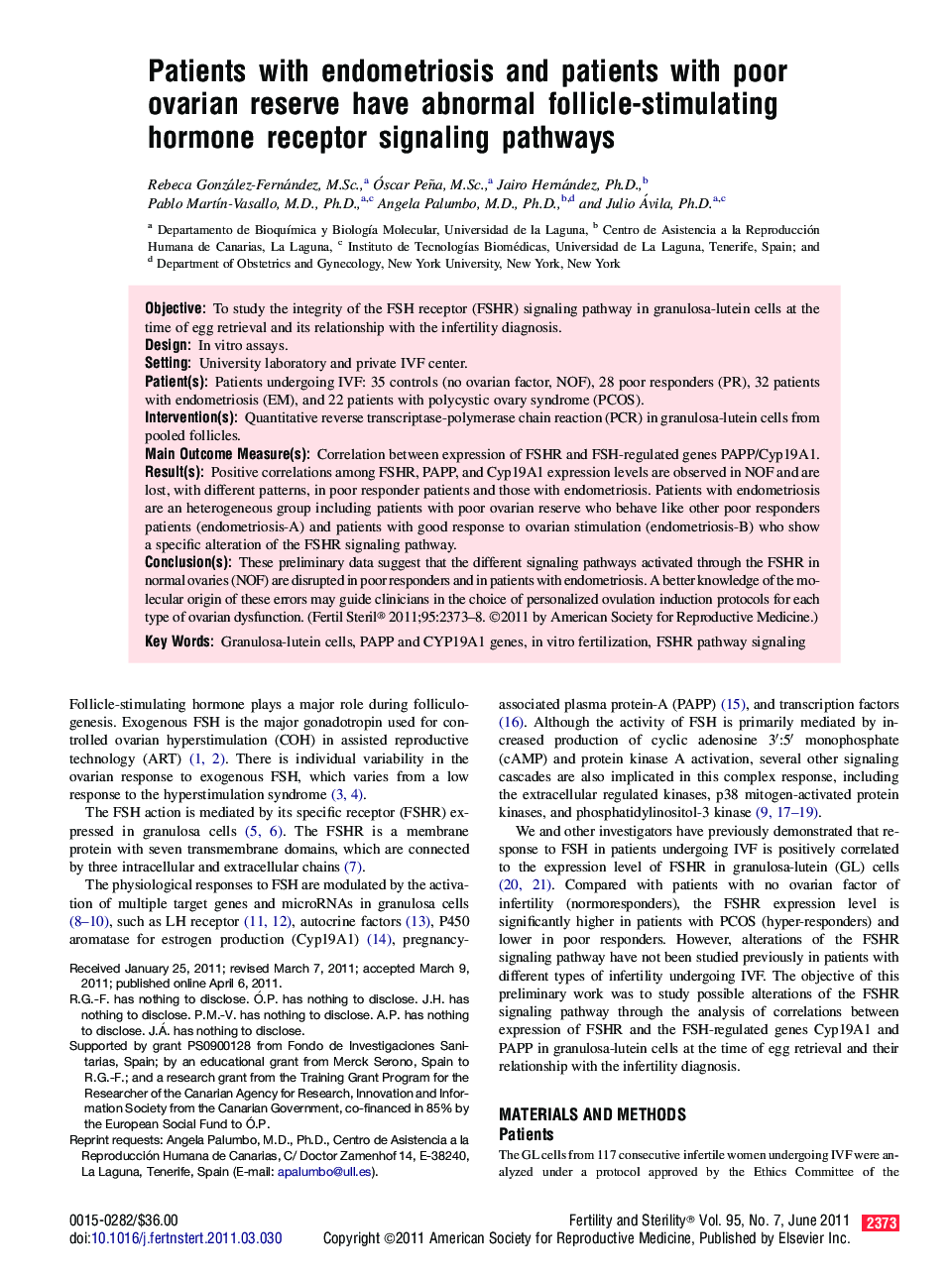| Article ID | Journal | Published Year | Pages | File Type |
|---|---|---|---|---|
| 3937784 | Fertility and Sterility | 2011 | 6 Pages |
ObjectiveTo study the integrity of the FSH receptor (FSHR) signaling pathway in granulosa-lutein cells at the time of egg retrieval and its relationship with the infertility diagnosis.DesignIn vitro assays.SettingUniversity laboratory and private IVF center.Patient(s)Patients undergoing IVF: 35 controls (no ovarian factor, NOF), 28 poor responders (PR), 32 patients with endometriosis (EM), and 22 patients with polycystic ovary syndrome (PCOS).Intervention(s)Quantitative reverse transcriptase-polymerase chain reaction (PCR) in granulosa-lutein cells from pooled follicles.Main Outcome Measure(s)Correlation between expression of FSHR and FSH-regulated genes PAPP/Cyp19A1.Result(s)Positive correlations among FSHR, PAPP, and Cyp19A1 expression levels are observed in NOF and are lost, with different patterns, in poor responder patients and those with endometriosis. Patients with endometriosis are an heterogeneous group including patients with poor ovarian reserve who behave like other poor responders patients (endometriosis-A) and patients with good response to ovarian stimulation (endometriosis-B) who show a specific alteration of the FSHR signaling pathway.Conclusion(s)These preliminary data suggest that the different signaling pathways activated through the FSHR in normal ovaries (NOF) are disrupted in poor responders and in patients with endometriosis. A better knowledge of the molecular origin of these errors may guide clinicians in the choice of personalized ovulation induction protocols for each type of ovarian dysfunction.
